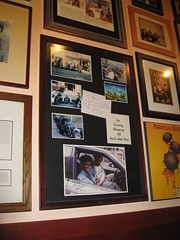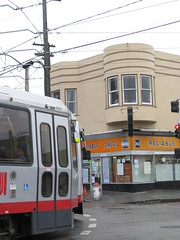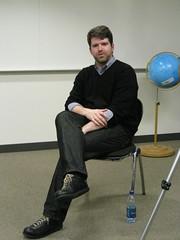Because of the eyeballs issue, Jacobs also advocates for mixed-use spaces, such as apartments above businesses. In addition to offering their eyeballs, shopkeepers also act as trusted strangers for the block. Being a trusted stranger is an important distinction because the trust is built upon the fact that the individual has no interest to meddle in your personal life because he/she does not know about your personal life. In fact, on Jacobs' block it was common to leave a spare set of keys with the nearest shopkeeper because there was no reason the shopkeepers would ever want to use one's keys.
Overall, Jacobs thinks that the more people there are on a block, the more privacy you have. I agree with her mostly, but there is a certain lack of privacy with your immediate neighbors. For example, I know that my upstairs neighbors are having a somewhat rocky time in their relationship because I can hear them yelling at each other quite frequently. Zeph used to live below a couple who routinely had the loudest sex ever in at 3 in the morning. I have more privacy then I would if I lived in a town of 50 people, but I also wonder what my neighbors know about me based on what they can hear through my walls.




The shopkeepers that run the stores are also very kind to residents of the neighborhood. One of them let my friend Christina use his bathroom a few times when her toilet broke, and one of the pics above shows an homage to a customer in the local pizza shop.
There are also benches along the sidewalk, which encourage individuals to sit and converse with each other in public. Holding a conversation in a public space, according to Jacobs, is preferable to a private space because there is no intrusion into one's home. Joe Schmo and I can go get a beer at the Mucky Duck without him seeing my pantyhose drying in the bathroom (which I don't have, BTW).
Overall, 9th and Irving is a great spot in the middle of the Inner Sunset, and I think that Jane Jacobs would be happy to live there.


